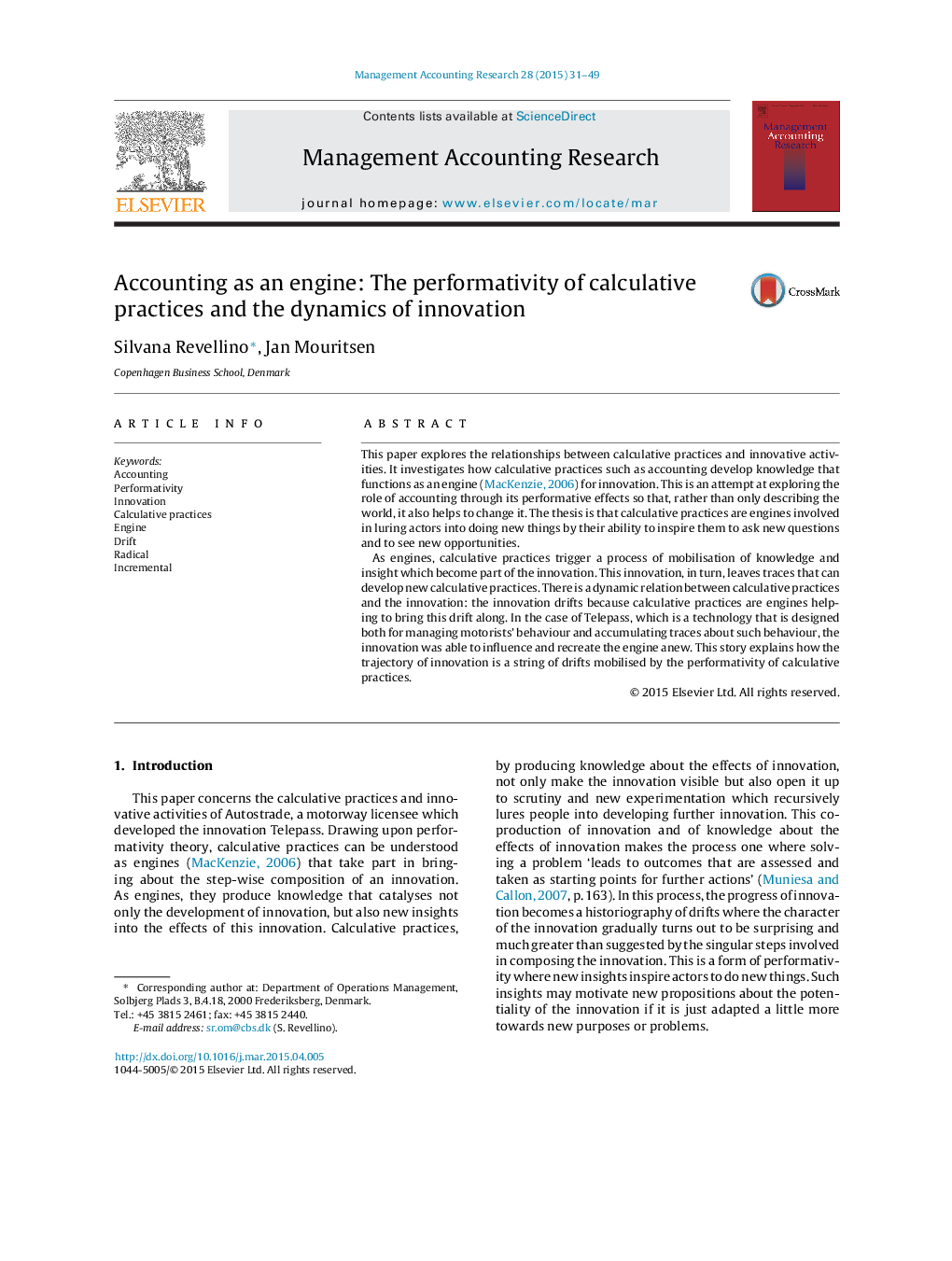| Article ID | Journal | Published Year | Pages | File Type |
|---|---|---|---|---|
| 1003438 | Management Accounting Research | 2015 | 19 Pages |
This paper explores the relationships between calculative practices and innovative activities. It investigates how calculative practices such as accounting develop knowledge that functions as an engine (MacKenzie, 2006) for innovation. This is an attempt at exploring the role of accounting through its performative effects so that, rather than only describing the world, it also helps to change it. The thesis is that calculative practices are engines involved in luring actors into doing new things by their ability to inspire them to ask new questions and to see new opportunities.As engines, calculative practices trigger a process of mobilisation of knowledge and insight which become part of the innovation. This innovation, in turn, leaves traces that can develop new calculative practices. There is a dynamic relation between calculative practices and the innovation: the innovation drifts because calculative practices are engines helping to bring this drift along. In the case of Telepass, which is a technology that is designed both for managing motorists’ behaviour and accumulating traces about such behaviour, the innovation was able to influence and recreate the engine anew. This story explains how the trajectory of innovation is a string of drifts mobilised by the performativity of calculative practices.
